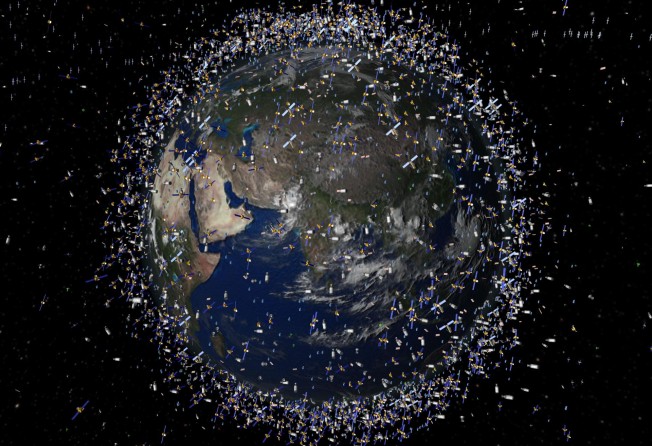
Japanese scientists aim to remove junk from space with metallic tether
A metallic tether will make use of its magnetic field to slow orbiting junk

Japanese space scientists are set to test a tether they hope will help pull junk out of orbit around earth, clearing up tonnes of planetary clutter.

The idea is that one end of the strip will be attached to one of the thousands of dead satellites or bits of rocket that are jamming up space and endangering working equipment.
The electricity generated by the tether as it swings through the earth's magnetic field is expected to have a slowing effect on the space junk, which should, scientists say, pull it into a lower and lower orbit.
Eventually, the detritus will enter the earth's atmosphere, burning up harmlessly long before it has a chance to crash into the planet's surface.
"The experiment is specifically designed to contribute to developing a space debris cleaning method," said Masahiro Nohmi, associate professor at Kagawa University, who is working with Jaxa on the project.
Nohmi said a satellite developed by the university was expected to be launched into space on February 28, with the tether aboard.
"We have two main objectives in the trial next month," he said. "First, to extend a 300-metre tether in orbit and, secondly, to observe the transfer of electricity."
The actual reeling in of orbiting rubbish would be the objective of future experiments, he said. A spokesman for Jaxa said the agency also planned to conduct its own trial on a tether in 2015.
More than 20,000 bits of cast off equipment, including old satellites, pieces of rocket and other fragments are uselessly orbiting the earth in a band 800 to 1,400 kilometres from the surface of the planet at terrific speed.
Their presence causes problems for space scientists, who have to try to prevent the space junk from smashing into functioning satellites and damaging parts.